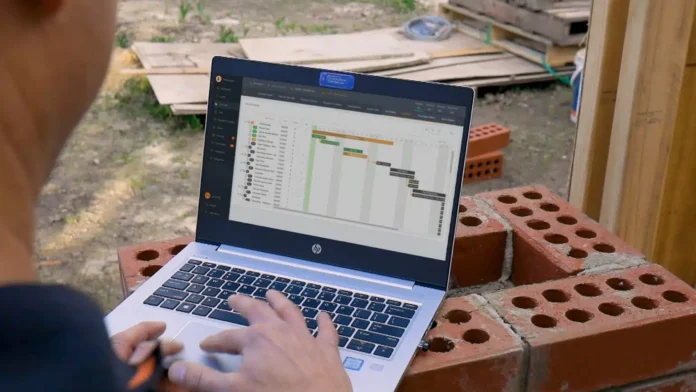In recent years, the construction industry has seen a significant transformation with the advent of advanced technologies. One such technology that is revolutionizing job sites is the Internet of Things (IoT). By integrating IoT with construction management software, companies can create smarter, more efficient, and safer job sites. This combination brings a new level of connectivity and data-driven decision-making to construction projects.
Real-Time Monitoring and Data Collection
One of the most significant benefits of integrating IoT with construction management software is the ability to monitor job sites in real time. IoT devices, such as sensors and wearable technology, can be installed across the site to collect data on various aspects of the project. These devices can monitor everything from equipment usage and worker productivity to environmental conditions and site safety.
For instance, sensors on heavy machinery can track usage patterns and performance, alerting managers to potential issues before they become costly problems. Wearable devices worn by workers can monitor their health and safety, providing data on their movements and ensuring they are not exposed to hazardous conditions for extended periods. This real-time data is then fed into the construction management software, where it can be analyzed and used to make informed decisions.
Enhanced Resource Management
Effective resource management is crucial for the success of any construction project. Integrating IoT with construction management software allows for better tracking and utilization of resources. IoT devices can monitor the location and status of materials, equipment, and personnel in real time, providing a comprehensive overview of resource availability and usage.
For example, RFID tags attached to construction materials can help track their movement and usage on-site. This ensures that materials are used efficiently and reduces the likelihood of theft or loss. Similarly, GPS-enabled devices on equipment can track their location and usage, helping to optimize their deployment and reduce downtime. By providing real-time visibility into resource usage, IoT and construction management software help ensure that resources are used effectively, reducing waste and improving project efficiency.
Improved Safety and Compliance
Safety is a top priority on any construction site. Integrating IoT with construction management software can significantly enhance site safety by providing real-time monitoring and alerts. IoT devices can detect hazardous conditions, such as gas leaks, extreme temperatures, or unsafe structural movements, and immediately alert site managers and workers.
Wearable devices can monitor workers’ health and safety, providing data on their physical condition and alerting managers to potential issues, such as fatigue or exposure to harmful substances. This real-time monitoring helps prevent accidents and injuries, ensuring that workers are safe and healthy on the job.
Additionally, IoT devices can help ensure compliance with safety regulations. By continuously monitoring site conditions and worker activities, IoT and construction management software can generate detailed reports on compliance with safety standards. This helps companies identify and address potential compliance issues before they result in fines or project delays.
Streamlined Project Management
Managing a construction project involves coordinating numerous tasks, schedules, and personnel. Integrating IoT with construction management software streamlines project management by providing real-time data and insights. This allows project managers to make more informed decisions and respond quickly to changing conditions on the job site.
For example, IoT devices can monitor project progress and provide real-time updates on task completion. This helps project managers identify potential delays and adjust schedules accordingly. Similarly, real-time data on resource usage and availability helps managers allocate resources more effectively, ensuring that tasks are completed on time and within budget.
The integration of IoT with construction management software also enhances communication and collaboration among project stakeholders. Real-time data and updates can be shared with all team members, ensuring that everyone is on the same page and working towards the same goals. This improves coordination and reduces the risk of miscommunication or errors.
Predictive Maintenance and Reduced Downtime
Construction equipment is a significant investment, and keeping it in good working condition is essential for project success. IoT devices can monitor the health and performance of equipment in real time, providing data on usage patterns and identifying potential issues before they lead to breakdowns. This predictive maintenance approach helps extend the lifespan of equipment and reduces downtime, ensuring that projects stay on schedule.
For example, sensors on machinery can monitor factors such as temperature, vibration, and wear. If these sensors detect abnormal conditions, they can alert maintenance teams to perform necessary repairs before the equipment fails. This proactive approach to maintenance helps prevent costly delays and ensures that equipment is always ready for use.
Data-Driven Decision Making
The integration of IoT with construction management software provides a wealth of data that can be used to make more informed decisions. By analyzing real-time data on various aspects of the project, managers can identify trends, predict potential issues, and make adjustments to improve efficiency and outcomes.
For instance, data on worker productivity can help managers identify areas where additional training or support is needed. Data on equipment usage can inform decisions on when to replace or upgrade machinery. By leveraging the insights provided by IoT and construction management software, companies can optimize their operations and achieve better project results.
Conclusion
The integration of IoT with construction management software is transforming the construction industry by creating smarter, more connected job sites. This combination offers numerous benefits, including real-time monitoring and data collection, enhanced resource management, improved safety and compliance, streamlined project management, predictive maintenance, and data-driven decision making. As technology continues to advance, the role of IoT in construction will only grow, providing new opportunities for innovation and efficiency in the industry.

